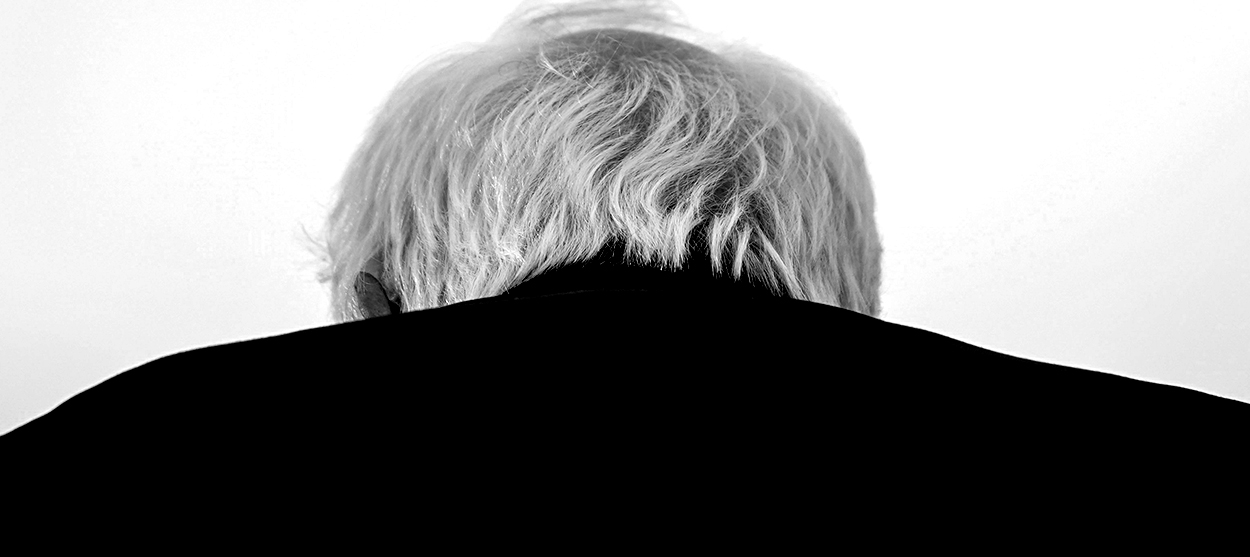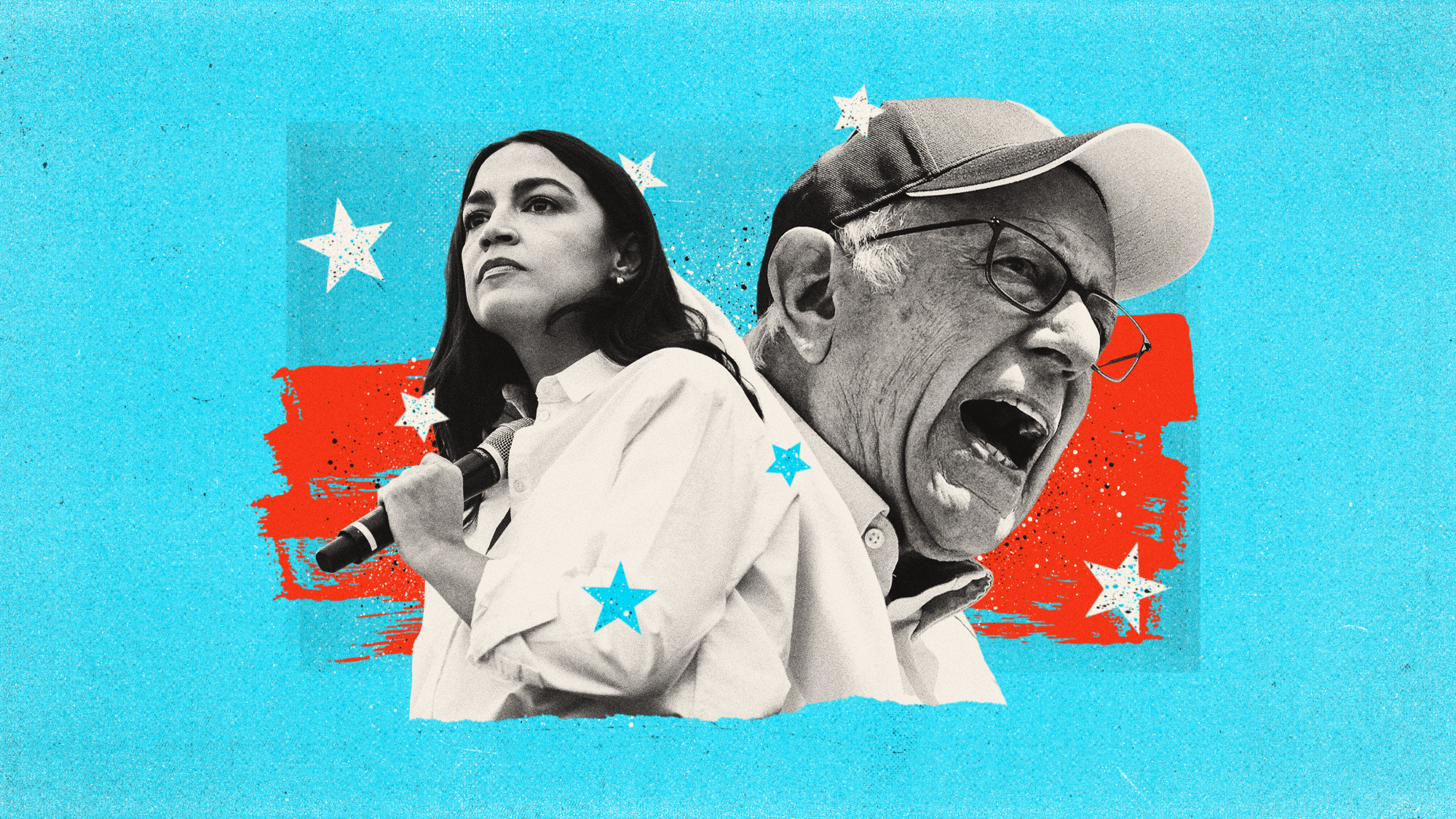Democrats ponder a coup d'Bernie
Bernie Sanders winning the nomination could be bad. Ousting him would be so much worse.


A free daily email with the biggest news stories of the day – and the best features from TheWeek.com
You are now subscribed
Your newsletter sign-up was successful
There are all kinds of reasons to think it would be bad for Vermont Sen. Bernie Sanders to end up as the Democratic nominee. But it would be far worse for the party's superdelegates to deny him the nomination at the Democratic convention in Milwaukee in the event that he ends up the plurality winner in the primaries but fails to cross the majority threshold. That significant numbers of party leaders apparently don't understand this is a very bad sign about what's going to unfold over the coming months.
Believe me, I get it. Sanders, a lifelong self-declared socialist, is at best a nominal Democrat. He has taken positions and said things over the years that would make crafting negative ads for the Trump campaign the easiest job in Republican politics. The faction of the party that's tempted to vote for billionaire Michael Bloomberg might stay home on Nov. 3, or even opt to vote for the president's re-election, when confronted with the prospect of a Democratic nominee who's proposing $53 trillion in new government spending. Sanders' plan for defeating Trump by mobilizing millions of new voters is so far nothing more than a pipe dream with no empirical foundation.
I could go on. Anointing Sanders the Democratic nominee could be very bad. But it wouldn't be as bad as trying to deny him the nomination after he'd won a plurality of the delegates during the primaries. Thinking that the institutional party has the requisite legitimacy and power to pull off such a coup against the plurality winner — especially one with such a large and passionate base of support, and one motivated in part by anger at that very same Democratic establishment — is delusional.
The Week
Escape your echo chamber. Get the facts behind the news, plus analysis from multiple perspectives.

Sign up for The Week's Free Newsletters
From our morning news briefing to a weekly Good News Newsletter, get the best of The Week delivered directly to your inbox.
From our morning news briefing to a weekly Good News Newsletter, get the best of The Week delivered directly to your inbox.
A Democratic Party that nominated Sanders in 2020 could well be defeated. But a Democratic Party that denied him the nomination after he'd won a plurality of the delegates in the primaries would be certain to shatter and nearly guaranteed to lose.
This isn't 1968, when Hubert Humphrey could enter the race on April 27, bypass the primaries entirely, and win the nomination simply by garnering support of party bigwigs desperate to hold a fracturing party together. After Humphrey's loss to Richard Nixon that November, the party began the process of dismantling the norms, institutions, and procedures that had made it possible. The result was a far more small-d democratic nomination process that relied much more heavily on primaries to assign delegates to candidates.
The first consequence of this democratization was the nomination four years later of George McGovern, the man who spearheaded the reform. Of course McGovern went on to lose to Nixon in a historic landslide. Since then, the system has worked well enough. The party's voters nominated a moderate (Jimmy Carter) who won the presidency in 1976, liberals who lost in 1984 and 1988, and then swerved toward the center-left in 1992 and has stayed there ever since, with a mix of general-election victories and defeats.
In 2008, the insurgent campaign of Barack Obama used the primary system very skillfully to wrest the nomination away from the candidate favored by a large faction of the party's establishment (Hillary Clinton). Sanders tried something similar in 2016 against Clinton again. This time she managed to prevail by mobilizing overwhelming institutional support on her behalf in a field with just two viable candidates. Despite those advantages, Clinton had to fight all the way through the primary season, with her opponent still managing to win 43 percent of the overall popular vote and 23 out of 57 contests. That was powerful early evidence of deep division among the chunk of the party — the voters — holding the power to decide its presidential nominee.
A free daily email with the biggest news stories of the day – and the best features from TheWeek.com
This year, the division among voters looks far deeper. The frontrunner is the socialist who gave the heir apparent a run for her money the last time around. The institutional party's favored choice, a long-time senator and two-term vice president, is struggling. Another competitive candidate is a former Republican billionaire who dislikes the socialist almost as much as the man each would face in the general election. Another billionaire is looking at a possible second-place double-digit finish in the upcoming South Carolina primary. Finally, three other candidates — two centrist options and one just slightly to the socialist's right — are failing to catch fire but doing just well enough to justify staying in the race and ensuring the field remains deeply divided as we head into Super Tuesday. Add in the party's decision to allocate delegates proportionally and we're left with a situation maximally likely to produce an indecisive outcome.
Looking at this mess and contemplating a fall campaign to defeat a president they despise and consider a serious threat to the future of American democracy, leading members of the institutional party and prominent opinion columnists are understandably distressed. What is not understandable, and frankly downright alarming, is these elites indulging in absurd and destructive fantasies of exerting the kind of control over the outcome that hasn't been possible for half a century.
I'm talking about fantasies of superdelegates denying the nomination to Sanders, even if he comes into the Milwaukee convention with a plurality of pledged delegates, and instead drafting this year's Hubert Humphrey, Ohio Sen. Sherrod Brown, to run in his place. Or persuading Michelle Obama to run as vice president on a ticket led by one of the non-Sanders candidates. Or giving the nomination to some other establishment favorite — like Kamala Harris, Mark Warner, Chris Coons, or Nancy Pelosi — while presumably telling Sanders' supporters to suck it up.
Then there's the most preposterous delusion of all — the one floated by New York Times columnist Thomas Friedman in a recent op-ed that's been shared well over a thousand times on Facebook. That's the fantasy of forming a "super ticket" led by Sanders or Bloomberg, with nearly every candidate still running, plus a few who already dropped out, plus Utah Sen. Mitt Romney, Admiral William McCraven, and New York Rep. Alexandria Ocasio-Cortez, joining together into a shadow-Cabinet, which would serve as a "team of rivals" to take charge right after they "defeat Trump in a landslide."
This gobsmackingly implausible scenario is worth contemplating for one reason alone — because it shows us so vividly the way the mind of a certain kind of apolitical (nay, antipolitical) centrist works. Conjure up a list of people with some popular support on multiple sides of the serious divides in our politics, close your eyes, and presto!, the disagreements separating them and their supporters in the real world magically vanish into thin air, leaving an overwhelming consensus that is nowhere to be found in the country as it actually exists.
This isn't a solution to the Sanders problem. It's a head-in-the-sand denial of the Sanders problem.
What would happen in the country as it actually exists if the institutional Democratic Party tried to deny Sanders the nomination after he won a majority of the pledged delegates? The party would fracture. That's because the move would be viewed by the millions of people who voted for Sanders (not to mention by the hundreds of Sanders delegates on the floor of the convention hall) as an illegitimate act — a power grab by people lacking their own equally robust popular base of support. It was the party itself that decided over 50 years ago that legitimacy would henceforth be a function of popular support. There's no going back now.
A fractured party would be a badly hobbled party — which would be an even greater gift to Trump than a socialist opponent. That means the superdelegates who believe in the importance of beating the president have only one reasonable path before them. If Sanders wins a plurality in the primaries, he has to be the nominee.
Damon Linker is a senior correspondent at TheWeek.com. He is also a former contributing editor at The New Republic and the author of The Theocons and The Religious Test.
-
 5 cinematic cartoons about Bezos betting big on 'Melania'
5 cinematic cartoons about Bezos betting big on 'Melania'Cartoons Artists take on a girlboss, a fetching newspaper, and more
-
 The fall of the generals: China’s military purge
The fall of the generals: China’s military purgeIn the Spotlight Xi Jinping’s extraordinary removal of senior general proves that no-one is safe from anti-corruption drive that has investigated millions
-
 Why the Gorton and Denton by-election is a ‘Frankenstein’s monster’
Why the Gorton and Denton by-election is a ‘Frankenstein’s monster’Talking Point Reform and the Greens have the Labour seat in their sights, but the constituency’s complex demographics make messaging tricky
-
 The billionaires’ wealth tax: a catastrophe for California?
The billionaires’ wealth tax: a catastrophe for California?Talking Point Peter Thiel and Larry Page preparing to change state residency
-
 Mamdani vows big changes as New York’s new mayor
Mamdani vows big changes as New York’s new mayorSpeed Read
-
 Bari Weiss’ ‘60 Minutes’ scandal is about more than one report
Bari Weiss’ ‘60 Minutes’ scandal is about more than one reportIN THE SPOTLIGHT By blocking an approved segment on a controversial prison holding US deportees in El Salvador, the editor-in-chief of CBS News has become the main story
-
 Has Zohran Mamdani shown the Democrats how to win again?
Has Zohran Mamdani shown the Democrats how to win again?Today’s Big Question New York City mayoral election touted as victory for left-wing populists but moderate centrist wins elsewhere present more complex path for Democratic Party
-
 Millions turn out for anti-Trump ‘No Kings’ rallies
Millions turn out for anti-Trump ‘No Kings’ ralliesSpeed Read An estimated 7 million people participated, 2 million more than at the first ‘No Kings’ protest in June
-
 Ghislaine Maxwell: angling for a Trump pardon
Ghislaine Maxwell: angling for a Trump pardonTalking Point Convicted sex trafficker's testimony could shed new light on president's links to Jeffrey Epstein
-
 The last words and final moments of 40 presidents
The last words and final moments of 40 presidentsThe Explainer Some are eloquent quotes worthy of the holders of the highest office in the nation, and others... aren't
-
 The anger fueling the Bernie Sanders and Alexandria Ocasio-Cortez barnstorming tour
The anger fueling the Bernie Sanders and Alexandria Ocasio-Cortez barnstorming tourTalking Points The duo is drawing big anti-Trump crowds in red states
